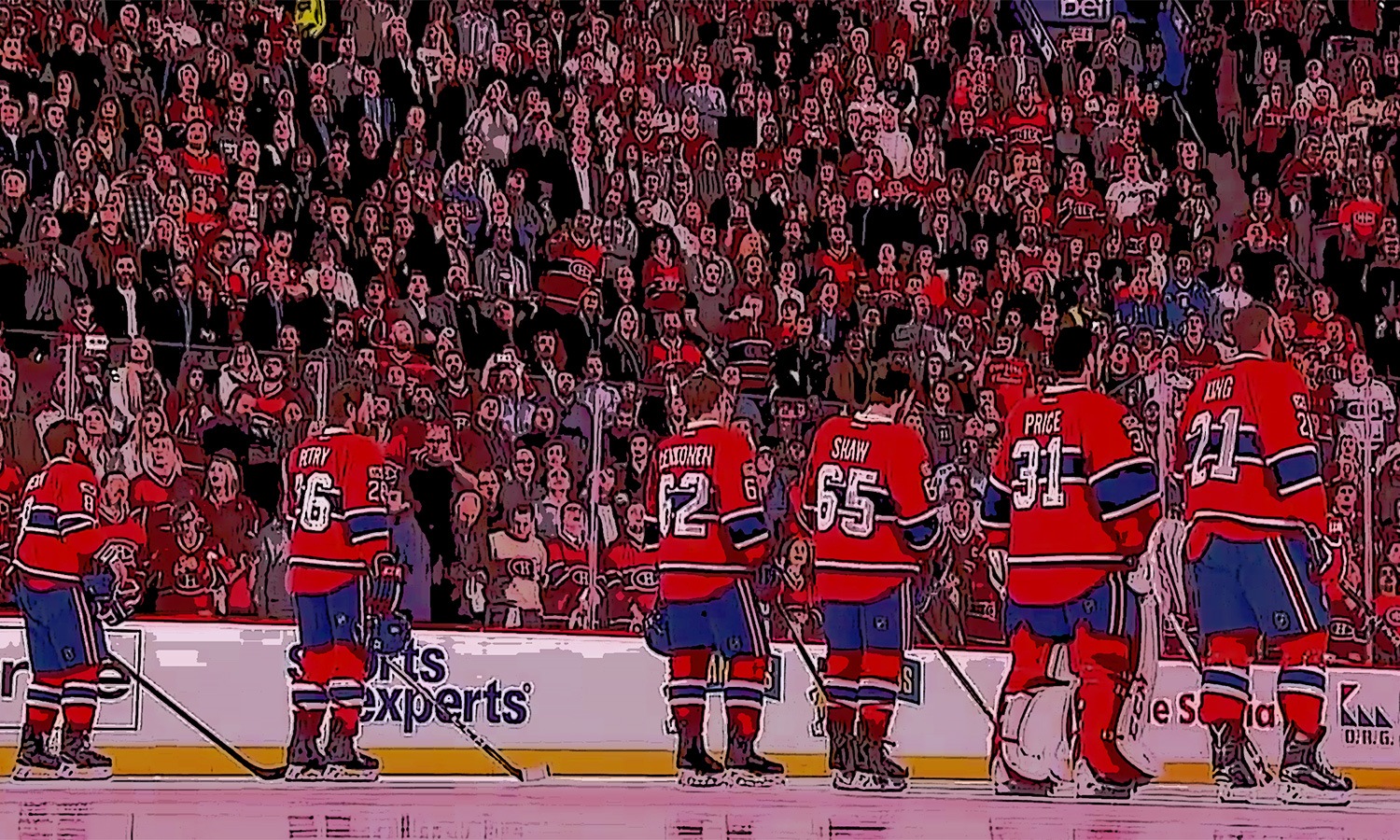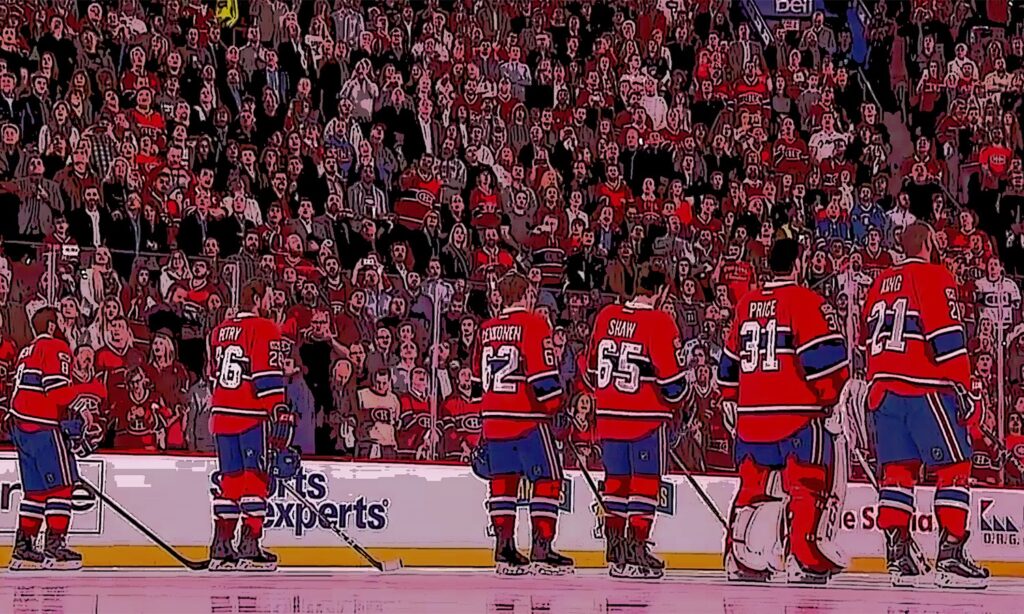Hockey games typically last around 2-2.5 hours. Hockey games are known for their fast-paced action and intense competition.
With three periods of play, each lasting 20 minutes, and intermissions between each period, the total duration of a hockey game can vary depending on factors such as penalties, stoppages in play, and overtime periods if necessary. The excitement of hockey keeps fans engaged throughout the game, as teams battle it out on the ice to score goals and secure victory.
Whether watching from the stands or from the comfort of your own home, hockey games provide thrilling entertainment for fans of the sport. So, grab your jersey and get ready for an adrenaline-filled experience on the ice.
The Clockwork Of Hockey
Hockey games are known for their fast-paced action and intense excitement. Understanding the timing and structure of a hockey game is essential for both players and fans. Let’s delve into the clockwork of hockey, breaking down the duration of regulation time, overtime, and shootout rules.
Regulation Time Breakdown
Regulation time in a standard hockey game consists of three periods, each lasting 20 minutes of play time. However, the total duration of a regulation game is typically longer due to stoppages, intermissions, and potential overtime.
Overtime And Shootout Rules
If the game is tied at the end of regulation time, a five-minute overtime period follows. If no winner is determined during overtime, a shootout ensues, where each team selects three players to take penalty shots. The team with the most goals after the shootout is declared the winner.

Credit: fanbuzz.com
Factors Affecting Game Duration
Factors affecting game duration in hockey include regular game play time, stoppages for penalties, timeouts, and intermissions. How Long Do Hockey Games Last? On average, hockey games typically last around 2 to 2. 5 hours, with overtime and shootouts adding to the total duration. Factors Affecting Game Duration Hockey is an exciting game that is loved by millions across the world. A typical hockey game can last anywhere from 60 minutes to more than two hours, depending on several factors.
In this post, we will discuss the factors that affect the duration of a hockey game. Stoppage Time Stoppage time is the time added to the game clock when there is a delay in play. Stoppage time can occur due to several reasons, including injuries, fights, equipment malfunctions, and video reviews. The duration of stoppage time can vary depending on the severity of the incident.
For example, a player injury may result in a longer stoppage time than an equipment malfunction. Intermissions and Breaks Hockey games are divided into three periods, each lasting 20 minutes. In between each period, there is a 15-minute intermission. During the intermission, players get a chance to rest, hydrate, and strategize for the upcoming period. In addition to intermissions, there are also breaks during the game for commercial purposes. These breaks can add anywhere from a few seconds to a few minutes to the game duration.
Penalties and Play Stoppage Penalties and play stoppage can significantly affect the duration of a hockey game. When a player commits a penalty, they are sent to the penalty box, and the game clock is stopped until the penalty is over. The duration of the penalty can vary depending on the severity of the offense. Play stoppage can also occur due to icing, offsides, and other violations. These stoppages can add several minutes to the game duration.
In conclusion, several factors can affect the duration of a hockey game, including stoppage time, intermissions, breaks, penalties, and play stoppage. While some of these factors are beyond a player’s control, they play a crucial role in determining the overall game duration. As a fan, it is essential to understand these factors to appreciate the game better.
Professional Leagues Vs. Amateur Games
Professional hockey leagues typically have longer game durations compared to amateur games. The average length of a hockey game can range from 2 to 3 hours, including regular playtime and potential overtime periods. In contrast, amateur games tend to be shorter, usually lasting around 1 to 1.
5 hours.
Nhl Standards
Professional hockey games in the NHL typically last around 2.5 to 3 hours.
Variations In Amateur Hockey
Amateur hockey games can have varying durations based on the league and level of play. In the NHL, games consist of three 20-minute periods with intermissions in between. Amateur games may have shorter periods or different regulations. The NHL has specific timing rules for stoppages, penalties, and overtime play. Amateur games might not adhere to the same strict timing standards. Amateur games can range from 1 to 2 hours in duration.
Playoff Hockey: A Different Beast
When it comes to hockey, there is no shortage of excitement and intensity. But when the playoffs roll around, the game takes on a whole new level of intensity and unpredictability. Playoff hockey is a different beast altogether, with extended overtimes and intense gameplay that can make games last much longer than their regular season counterparts.
Extended Overtime
In regular season hockey, if a game is tied at the end of regulation, it goes into a five-minute sudden death overtime period. But in playoff hockey, there is no limit to how long the game can go on. Extended overtime periods can stretch the game into nail-biting, edge-of-your-seat territory.
In some cases, playoff games have gone into multiple overtime periods, lasting well into the early hours of the morning. This is where the true endurance and mental fortitude of the players come into play. They must dig deep and push themselves to the limit, knowing that every shift could be the one that decides the game.
Intensity And Game Length
Playoff hockey is known for its heightened intensity. The players leave everything on the ice, putting their bodies on the line and battling for every puck. This level of intensity can lead to longer game lengths as the players fight tooth and nail to gain the upper hand.
Additionally, the stakes are higher in the playoffs. Every goal, every save, and every mistake can have a significant impact on the outcome of the game and the series as a whole. This added pressure can contribute to longer game lengths as teams become more cautious and strategic in their approach.
It’s not uncommon to see players diving to block shots, sacrificing their bodies to keep the puck out of the net. This kind of commitment to the game and to their team can prolong the length of the game as the players give it their all.
Overall, playoff hockey is a different beast compared to the regular season. With extended overtime periods and heightened intensity, games can last much longer and provide fans with an unforgettable experience. So, buckle up and get ready for some thrilling, edge-of-your-seat action when playoff hockey rolls around!
Historic Lengths
Record-breaking Matches
Some hockey games have made history for their extraordinary lengths. The longest game in NHL history took place in 1936, lasting a staggering 176 minutes and 30 seconds of play time. This epic battle occurred between the Detroit Red Wings and the Montreal Maroons, ultimately resulting in a 1-0 victory for the Red Wings. This remarkable feat continues to be a source of fascination for hockey enthusiasts.
Impact On Players And Fans
Extended hockey games have a profound impact on both players and fans. Players must exhibit exceptional stamina and mental fortitude to endure the physical and mental demands of prolonged gameplay. Furthermore, fans are treated to an exhilarating and unforgettable experience, witnessing the resilience and determination of their favorite teams. These historic lengths not only test the endurance of players but also create enduring memories for fans.
Broadcast Considerations
Television Schedules
Television schedules play a crucial role in determining the duration of hockey games. Networks need to plan their programming accordingly, taking into account the allocated time slot for the game. Typically, hockey games are scheduled for a duration of approximately two and a half hours, including pre-game and post-game coverage. However, it’s important to note that the actual gameplay itself usually spans around two hours.
Impact Of Commercials
The impact of commercials on the length of hockey games cannot be underestimated. Networks rely on advertising revenue to support their broadcasts, and therefore, commercial breaks are interspersed throughout the game. These breaks not only allow networks to generate revenue but also provide players with a brief rest period. Consequently, the duration of hockey games can be extended by several minutes due to the inclusion of commercials.
During each period, there are typically two commercial breaks, which last around two minutes each. Additionally, there is a longer intermission between the second and third periods, commonly lasting around 15 minutes. These commercial breaks and intermissions contribute to the overall duration of a hockey game.
Moreover, the length of commercial breaks can vary depending on the importance of the game and the specific network broadcasting it. High-stakes games, such as playoffs or championship matches, often feature longer commercial breaks to accommodate increased advertising demand.
In conclusion, hockey games last approximately two and a half hours, with the gameplay itself lasting around two hours. Television schedules and the inclusion of commercial breaks significantly impact the duration of these games. Networks carefully plan their programming to ensure the game fits within the allocated time slot, while also utilizing commercial breaks to generate revenue and provide players with brief rest periods.
Influence Of Game Length On Strategy
Hockey games, renowned for their fast-paced nature, have a significant impact on strategic decisions due to their varying lengths.
Coaching Decisions
Coaches adjust tactics based on game duration, optimizing player performance.
Strategic timeouts become crucial for strategic planning and motivating players.
Player Stamina And Performance
Players’ endurance is vital for maintaining peak performance throughout the game.
Shorter games demand quick bursts of energy while longer games require sustained stamina.

Credit: www.gaimday.com
Fan Experience And Game Duration
Hockey games provide an exhilarating experience for fans, both at the arena and from the comfort of their homes. The duration of a hockey game significantly impacts the fan experience, influencing factors like live attendance and viewing at home.
Live Attendance
At the arena, fans immerse themselves in the electrifying atmosphere of a live hockey game. The average game duration of around 2 to 2.5 hours allows fans to enjoy the thrill of the game without it dragging on for too long.
Viewing At Home
Watching hockey games from home offers a different yet equally exciting experience. With the convenience of live broadcasts, fans can follow the action from start to finish, all within the same 2 to 2.5-hour timeframe.

Credit: www.gaimday.com
Frequently Asked Questions
How Long Is A Typical Hockey Game?
A typical hockey game lasts around 2 to 2. 5 hours, including three 20-minute periods with intermissions.
What Factors Can Affect The Duration Of A Hockey Game?
Several factors can affect the duration of a hockey game, such as stoppages, penalties, and overtime periods, which can extend the game.
Why Do Some Hockey Games Last Longer Than Others?
Hockey games can last longer due to overtime periods, shootouts, and the pace of play, which can influence the overall game duration.
Conclusion
The duration of a hockey game can vary depending on the level of play and the number of periods played. Youth and amateur games usually last an hour, while professional games take longer. However, regardless of the length of the game, hockey remains a thrilling and fast-paced sport that has captured the hearts of many fans worldwide.
Whether you’re a player or a spectator, hockey is a sport that is sure to keep you on the edge of your seat from start to finish.